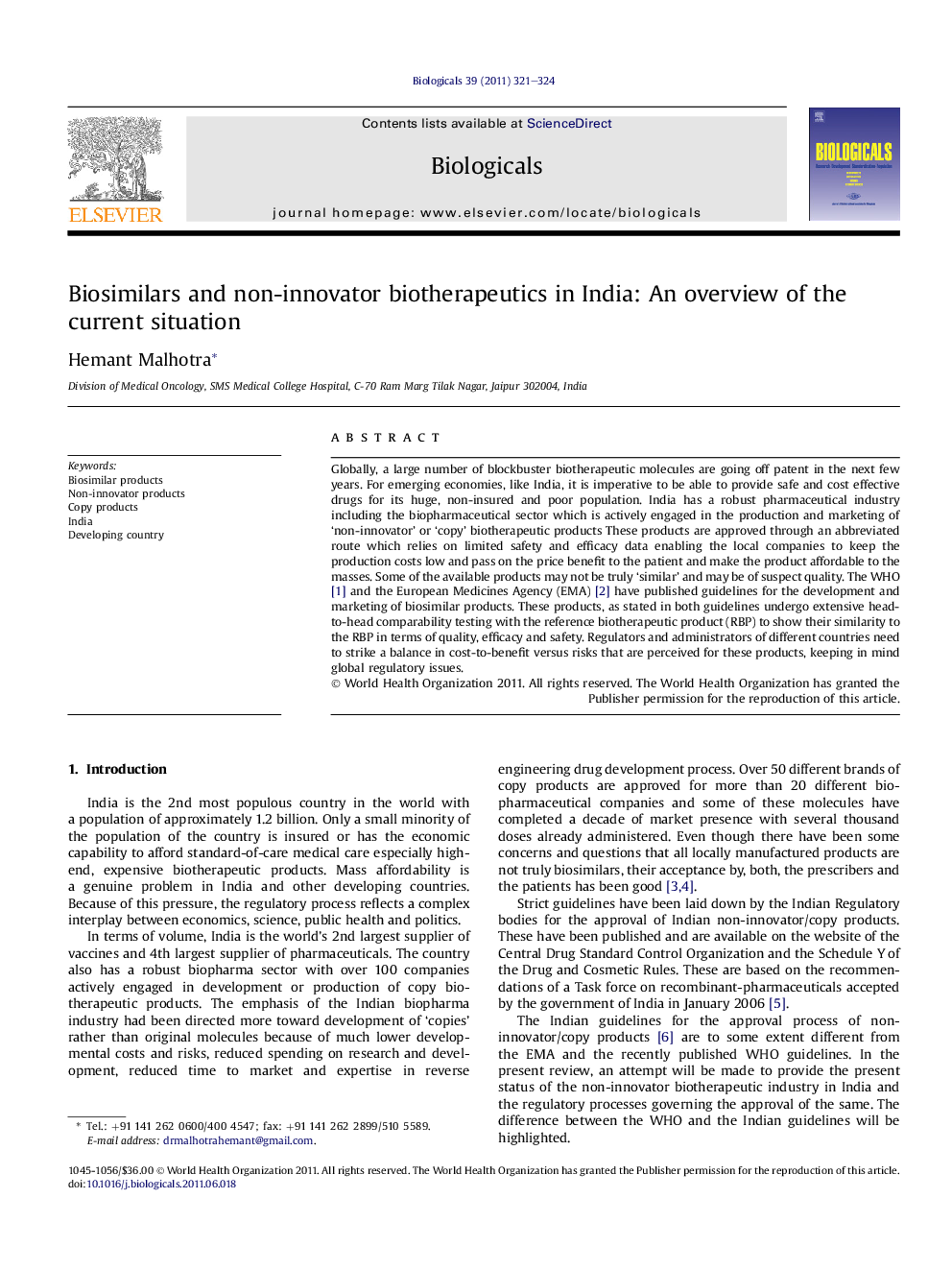| Article ID | Journal | Published Year | Pages | File Type |
|---|---|---|---|---|
| 10852775 | Biologicals | 2011 | 4 Pages |
Abstract
Globally, a large number of blockbuster biotherapeutic molecules are going off patent in the next few years. For emerging economies, like India, it is imperative to be able to provide safe and cost effective drugs for its huge, non-insured and poor population. India has a robust pharmaceutical industry including the biopharmaceutical sector which is actively engaged in the production and marketing of 'non-innovator' or 'copy' biotherapeutic products These products are approved through an abbreviated route which relies on limited safety and efficacy data enabling the local companies to keep the production costs low and pass on the price benefit to the patient and make the product affordable to the masses. Some of the available products may not be truly 'similar' and may be of suspect quality. The WHO [1] and the European Medicines Agency (EMA) [2] have published guidelines for the development and marketing of biosimilar products. These products, as stated in both guidelines undergo extensive head-to-head comparability testing with the reference biotherapeutic product (RBP) to show their similarity to the RBP in terms of quality, efficacy and safety. Regulators and administrators of different countries need to strike a balance in cost-to-benefit versus risks that are perceived for these products, keeping in mind global regulatory issues.
Keywords
Related Topics
Life Sciences
Biochemistry, Genetics and Molecular Biology
Biochemistry, Genetics and Molecular Biology (General)
Authors
Hemant Malhotra,
